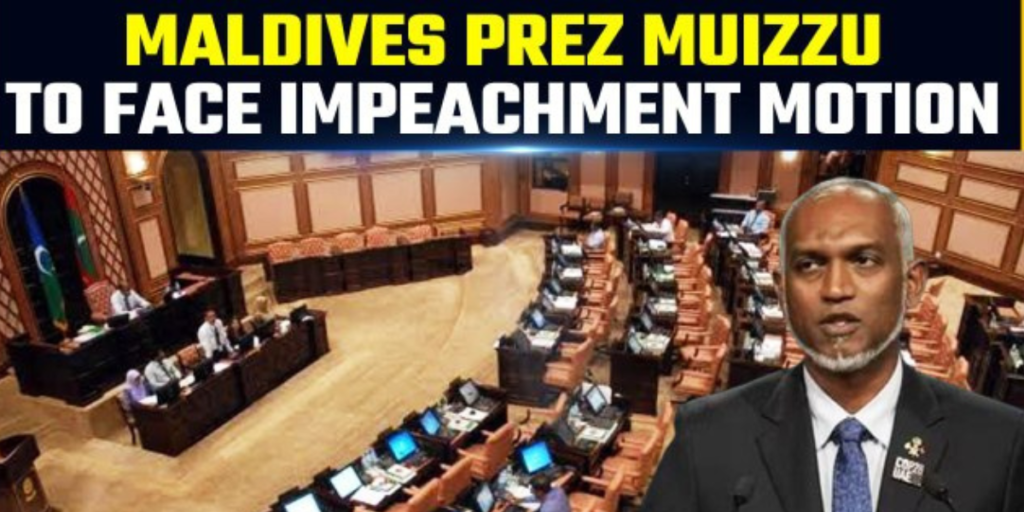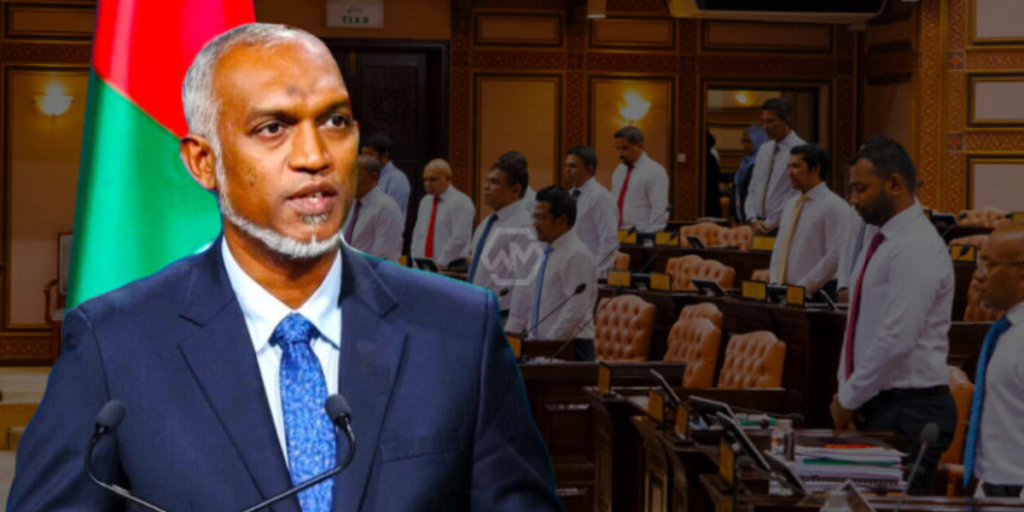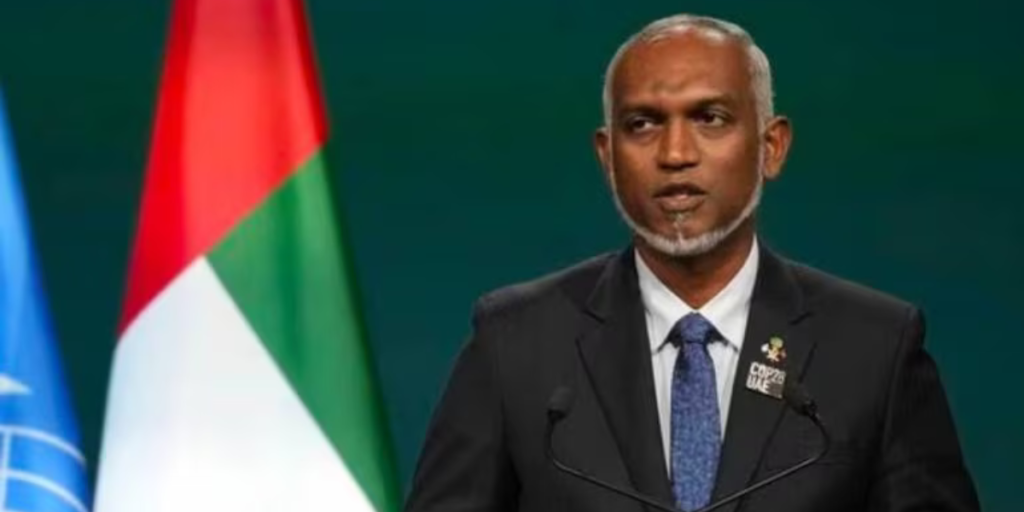The Maldives, an island nation in the Indian Ocean, is currently in the midst of a political storm as the opposition party, the Maldivian Democratic Party (MDP), is gearing up to submit a motion to impeach the pro-China President Mohamed Muizzu. The coalition government, consisting of the Progressive Party of Maldives (PPM) and the People’s National Congress (PNC), staunchly opposes any attempts to remove President Muizzu through Parliament. The situation has escalated recently, marked by clashes in the Parliament and a growing political rift.

Table of Contents
Impeachment Threats and Government’s Firm Stand:
The Maldivian Democratic Party (MDP), holding a majority in Parliament, is making headlines with its plans to submit a motion to impeach President Mohamed Muizzu. However, the coalition government, led by the PPM and PNC, is vehemently opposing these efforts. In a bold statement, PPM Parliamentary Group leader Ahmed Saleem emphasized that they would not allow any attempts to remove the President, stating, “They will have to kill us all first before they can even think of removing the President from office.”
Parliamentary Chaos and Cabinet Approval Dispute:
Tensions reached a boiling point in the Maldives Parliament when clashes erupted between pro-government MPs and opposition lawmakers. The root cause of the confrontation was differences over the approval of four members of President Muizzu’s cabinet, who are considered pro-China. The Parliament approved only one of the four members, triggering further discontent. The main opposition MDP issued a three-line red whip against the cabinet members, leading to protests and disruptions in the parliamentary proceedings.
MDP’s Unanimous Decision on Impeachment Motion:
In a significant development, the Maldives parliamentary group of the Maldivian Democratic Party (MDP) unanimously decided to submit an impeachment motion against President Mohamed Muizzu. This decision comes in the wake of the recent clashes and disagreements over the cabinet appointments. It is worth noting that a minimum of 53 votes within Parliament is required to successfully impeach a sitting president.

Parliamentary Amendments Facilitating Impeachment:
The Maldives Parliament, consisting of 87 members, recently amended its standing orders, making it easier to submit an impeachment motion. This procedural change has added a layer of complexity to the ongoing political turmoil. The MDP and the Democrats, with a combined total of 56 MPs, hold a significant majority. However, the outcome of the impeachment motion remains uncertain as the political landscape continues to evolve.
Coalition’s Counter-Moves: No-Confidence Motions Against Speaker and Deputy Speaker:
In a counter-move, the ruling PPM-PNC coalition, with the endorsement of 23 lawmakers, submitted no-confidence motions against Speaker Mohamed Aslam and Deputy Speaker Ahmed Saleem, both from the MDP. This move adds another dimension to the political crisis, indicating a deepening divide within the Parliament. The implications of these no-confidence motions against President Muizzu on the overall stability of the government are yet to unfold.
Upcoming Parliamentary Elections and Political Uncertainty:
The Maldives is gearing up for parliamentary elections scheduled for mid-March. Against the backdrop of the current political chaos, the elections are anticipated to be highly consequential. The outcome will not only determine the composition of the Parliament President Muizzu but also shape the future direction of the country’s leadership and geopolitical alignments.
President Muizzu’s Pro-China Stance and Relations with India:
President Mohamed Muizzu, regarded as a pro-China leader, assumed office on November 17 last year. One of his early moves was to formally request India to withdraw its military personnel from the Maldives, citing a “strong mandate” from the Maldivian people. This diplomatic maneuver has added complexity to the regional dynamics, with implications for the geopolitical balance in the Indian Ocean region.

Parliamentary Violence and Disruptions:
The recent chaos in the Maldivian Parliament, marked by lawmakers coming to blows, disrupted a special session convened to seek parliamentary approval for President Muizzu’s cabinet ministers. The violence erupted following the MDP’s decision to withhold approval for four cabinet members, triggering protests from pro-government MPs. The scenes of disorder in the Parliament underscore the deep-seated tensions and political polarization within the Maldives.
Conclusion:

The Maldives finds itself at a critical juncture, with the specter of impeachment looming over President Mohamed President Muizzu. The political landscape is characterized by clashes in Parliament, a standoff between the opposition and the coalition government, and the filing of no-confidence motions against key parliamentary figures. As the country approaches crucial parliamentary elections, the outcome will determine the course of its political future and its standing in the international arena. The geopolitical dimensions, especially the pro-China stance of President Muizzu and its implications for regional alliances, add a layer of complexity to an already tumultuous situation. The eyes of the international community are on the Maldives as it navigates through this period of uncertainty and political unrest.

